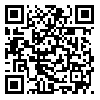Volume 19, Issue 4 (2017)
mjms 2017, 19(4): 55-69 |
Back to browse issues page
Download citation:
BibTeX | RIS | EndNote | Medlars | ProCite | Reference Manager | RefWorks
Send citation to:



BibTeX | RIS | EndNote | Medlars | ProCite | Reference Manager | RefWorks
Send citation to:
Shirzad H, Poursangi M, Maghsoudi H, Jalili S. An Assessment of the Increase in Fetal Hemoglobin Gene Expression in the K562 Cell Line Treated by Dendrosomal Nano-curcumin. mjms 2017; 19 (4) :55-69
URL: http://mjms.modares.ac.ir/article-30-698-en.html
URL: http://mjms.modares.ac.ir/article-30-698-en.html
1- Research Institute of Police Science and Social Studies, Tehran, Iran
2- Department of Biology, Faculty of Basic Sciences, Payame Noor University, PNU Ray, Tehran, Iran
2- Department of Biology, Faculty of Basic Sciences, Payame Noor University, PNU Ray, Tehran, Iran
Abstract: (9924 Views)
Objective: Fetal hemoglobin is the predominant hemoglobin expressed by gamma globin. However, in adults, fetal hemoglobin normally reduces to very low levels of the total hemoglobin. The increase in levels of fetal hemoglobin can ameliorate the severity of β-hemoglobin disorders such as sickle cell disease and beta-thalassemia. Currently, drugs that have been used for induction of Fetal hemoglobin (HbF) have short-term effects. Dendrosomal nano-curcumin (DNC), which has high solubility and absorption, is able to detect different targets in the cell and affect gene expression. LSD1 is one of the most important gamma globin inhibitors. In this study, we examine the capability of DNC to inhibit the expression of LSD1, GATA1, and FOG1 as well as the increase in gamma globin expression.
Methods: We used the K562 cell line for the MTT assay and treatment by DNC. Then the effect of DNC on the increase in expression level of γ-globin, decrease expression level of LSD1 and transcription factors, GATA1 and FOG1was investigated by Real time PCR.
Results: Data acquired from gene expression assays indicated that DNC induced gamma globin expression and decreased expressions of LSD1, GATA1, and FOG1 in a time and dose-dependent manner.
Conclusion: Inhibition of LSD1, GATA1, and FOG1 expressions via DNC led to increased gamma globin expression. These results showed that DNC could be a promising treatment for beta-thalassemia and sickle cell disorders, and possibly reduce the severity of symptoms of these patients through the induction of fetal hemoglobin.
Article Type: Original Manuscipt |
Subject:
Human Genetics
Received: 2016/11/15 | Accepted: 2017/01/20
Received: 2016/11/15 | Accepted: 2017/01/20
| Rights and permissions | |
 |
This work is licensed under a Creative Commons Attribution-NonCommercial 4.0 International License. |






